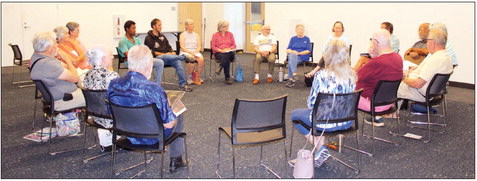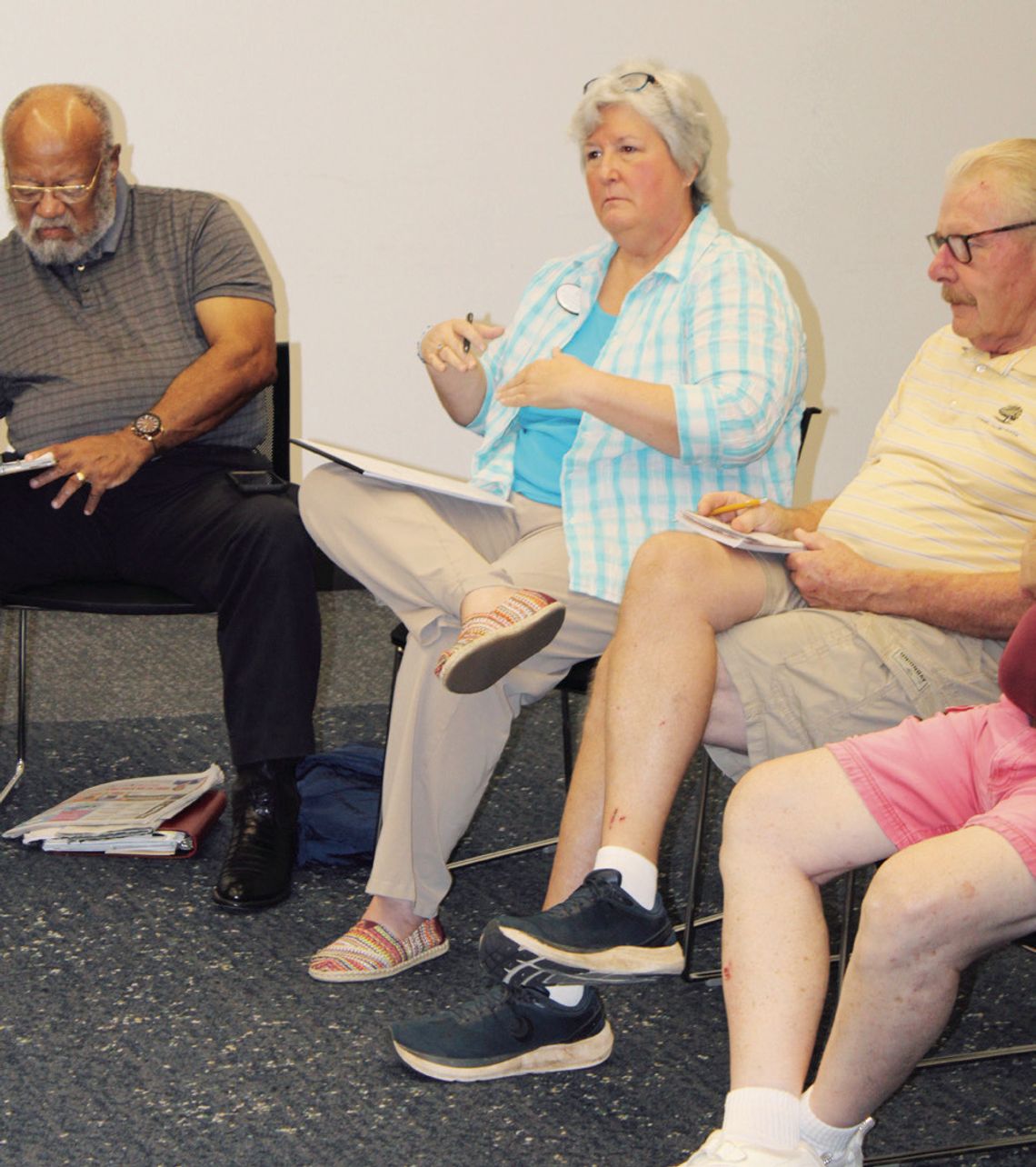LIFELONG LEARNING
Conversations around political topics can be rife with disdain and can lead to hurt feelings. These uncomfortable situations cannot be avoided, and one former policy-maker believes that a little bit of practice could be an effective tool for making these interactions more productive. Stephanie Korcheck, Lifelong Learning SMTX assistant director, is providing an opportunity to have calm, constructive political discourse in a structured and safe setting. Each session is on a different political issue and two have already occurred. The discussions occur from 2 to 3:30 p.m. every Monday until Oct. 28 at the San Marcos Public Library. The first topic discussed was the economy.
“It's not a negative. It's not a positive. Politics is a process by which all of the beliefs and values and opinions and data gets thrown into the middle, and we try to come out with laws [or] policies to hopefully move us forward as a state or a country,” Korcheck said. “I can't think of a single policy issue where there is a right answer. There is not a single right way to craft legislation on the economy, immigration, abortion, elections, the things we're going to talk about, because there are a myriad of points of view on those issues. And again, we have to engage in the political process to try to find compromise.”
Grady Early said he believes that the U.S. economy is doing great, but the way that it is financed is creating a lot of the issues that we see today.
“A lot of people today, for example, buy a house with no hope of ever paying for it. The only thing they're interested in is, can we make the payments,” Early said. “The federal government, it appears to me, works the same way. We're never going to pay off the national debt. What we're going to try to do is manage it. Can we make the payments? Congress just had to meet to up the debt limit a few days ago.”
The discussion moved to inflation, and Korcheck encouraged the group to try to focus on facts rather than opinions.
“Inflation is the cost of goods compared to how much money we have to spend,” she said.
One participant pointed to shortages in resources as a reason for increasing inflation.
“Economic law of supply and demand,” Korcheck said. “Specifically to inflation, gasoline or energy costs are a huge cost for most consumers. So if those prices are elevated, then that has the potential to raise inflation. And they have been elevated.”
The impacts of the COVID-19 pandemic were also discussed with one participant pointing to the stimulus checks as a problem.
“There are those that argue that the stimulus checks that came out at the end of Trump's term and into Biden's term did kind of… [impact] inflation,” Korcheck said. “There are other people who say, ‘Yeah, but they were necessary to keep people in their homes,’ etc. etc. I mean, again, this is why there are no right answers. Of course, COVID disrupted supply chains, and we're still trying to recover from that.”
Korcheck showed a graph that detailed inflation over the past several years.
“You can see that it went up a little bit when Trump took office, and then the rate of inflation went down,” she said. “And of course, COVID — not Joe Biden's fault, not Trump's fault, not anybody's fault — but COVID hits and that triggers [a rise in inflation].”
The conflict between Ukraine and Russia was discussed as another contributing factor.
“So the war in Ukraine disrupted a lot of the grain because they're a major bread basket for the world,” Korcheck said. “A lot of petroleum [distribution was impacted by it] as well.”
Korcheck ended the discussion by highlighting the ways that the government decides to distribute resources.
“A lot of government time is spent figuring out what do we have and who are we going to give it to? And that can be dollars. That can be other things,” she said. “Those decisions about who are we going to give it to speaks to our values, and our values change over time, right?”
If one would like to participate in upcoming discussions, email Korcheck at [email protected].








